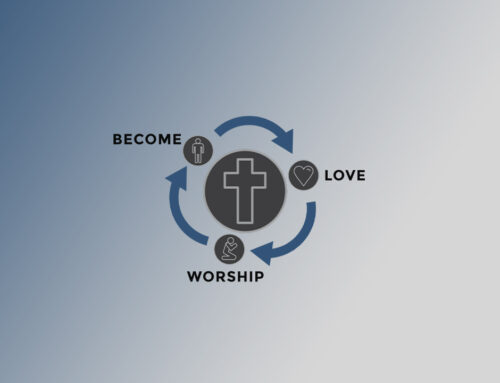“God is less interested in external behavior than He is about internal attitude.” Almost a hard thought to swallow. All our lives we are told to live according to the external: “Do this!” “Don’t to that!” “Follow these rules!” “Behave this way!” “Quit acting like so-and-so!” But I have come to the conclusion that God is more interested in what is going on internally in my life than what is coming out of it.
Am I saying the externals don’t matter? No. But the externals are not the focus. The issue is not on what is right or wrong; the issue is the internal heart attitude. If the internal is right, the external will follow suit; but if the internal is polluted and corrupt, no amount of external behavior or “righteousness” will hide the reality of the heart from God.
Once, when confronting the Pharisees, Jesus said, “Woe to you, scribes and Pharisees, hypocrites! For you cleanse the outside of the cup and dish, but inside they are full of extortion and self-indulgence. Blind Pharisee, first cleanse the inside of the cup and dish, that the outside of them may be clean also” (Matthew 23.25-26).
It doesn’t matter how clean and attractive the outside of the cup is if the inside is full of moldy crud.
In Psalm 51.14-17 David writes:
Deliver me from the guilt of bloodshed, O God, The God of my salvation, And my tongue shall sing aloud of Your righteousness. O Lord, open my lips, And my mouth shall show forth Your praise. For You do not desire sacrifice, or else I would give it; You do not delight in burnt offering. The sacrifices of God are a broken spirit, A broken and a contrite heart— These, O God, You will not despise.
For several hundred years the Israelites were accustomed to sacrificing. There was nothing wrong with it; in fact, God established the entire sacrificial system. But even in the height and heyday of sacrificing, David boldly declares: “God, You do not delight in sacrifices or burnt offerings!” WHAT?
David has been confronted about his sin (2 Samuel 11-12). Throughout the psalm of confession and repentance, David comes to realize that he cannot escape the realities of the sin nature within his life unless God intervenes.
Now, at the end of the psalm, it is as if God has pulled back the curtains of reality and has revealed the heart of the issue, which is … um, the heart.
Was the external sin wrong? YES! Was the physical activity horrid? Absolutely. But that is not the issue. Sure, the external sin must be dealt with, but the issue really is the heart. God can deal with the external sin (forgiveness), but without an internal change of nature, David will keep on sinning.
Paul dealt with this issue in Ephesians 1.7 – “In Him we have redemption through His blood, the forgiveness of sins, according to the riches of His grace…”
Forgiveness has to do with the deeds of sin – sins we commit. When we commit sin, it needs to be forgiven (which Jesus has on the cross). But if the Good News stopped there, the nature of sin, which Paul calls the flesh or old man, would still rein in our lives and thus continue to produce more sins. The nature of sin must be dealt with, and it has, on the cross. Read Romans six and eight, Paul is strong in his language that the nature of sin (the flesh) has been dealt with and we no longer live under its tyrannical rule. We are free – and thus no longer have to keep sinning!
David sees God’s reality and writes: “The [true] sacrifices of God are a broken spirit, a broken and contrite heart.
Norman Grubb in his little (but profound) book Continuous Revival writes this on brokenness: “[Man] sees his sinful condition before God as he realizes the coming judgment and wrath, as he is pointed to the slain Lamb he has to “break” at the foot of the cross. The proud self-justifying, self-reliant, self-seeking self has to come simply as a lost, undone sinner, whose only hope is a justifying Savior…. Continuous revival is a simple daily walking with Jesus, and it means walking in a two-way brokenness which is expressed in the heart to God and by the mouth before men.”
In essence, a broken spirit and contrite heart is all about dependence. It is realizing that you are weak and the only hope of victory you have lies in Jesus.
Read the other Bible Studies in this series:
Psalm 51.1-2
Psalm 51.3-4
Psalm 51.5-9
Psalm 51.10-13
Psalm 51.14-17
Disclosure of Material Connection: Some of the links in the post above are “affiliate links.” This means if you click on the link and purchase the item, deeperChristian will receive an affiliate commission (with no additional cost to you). It is a great way to support the work and ministry of deeperChristian. Regardless, we only recommend products or services we use personally and believe will add value to our readers. We are disclosing this in accordance with the Federal Trade Commission’s 16 CFR, Part 255: “Guides Concerning the Use of Endorsements and Testimonials in Advertising.”













